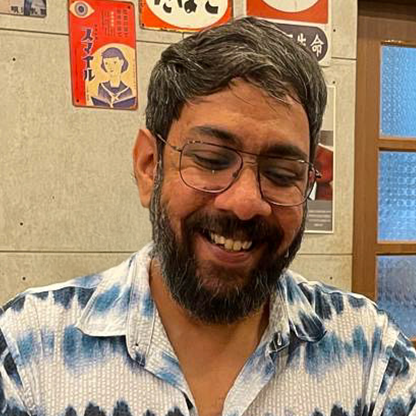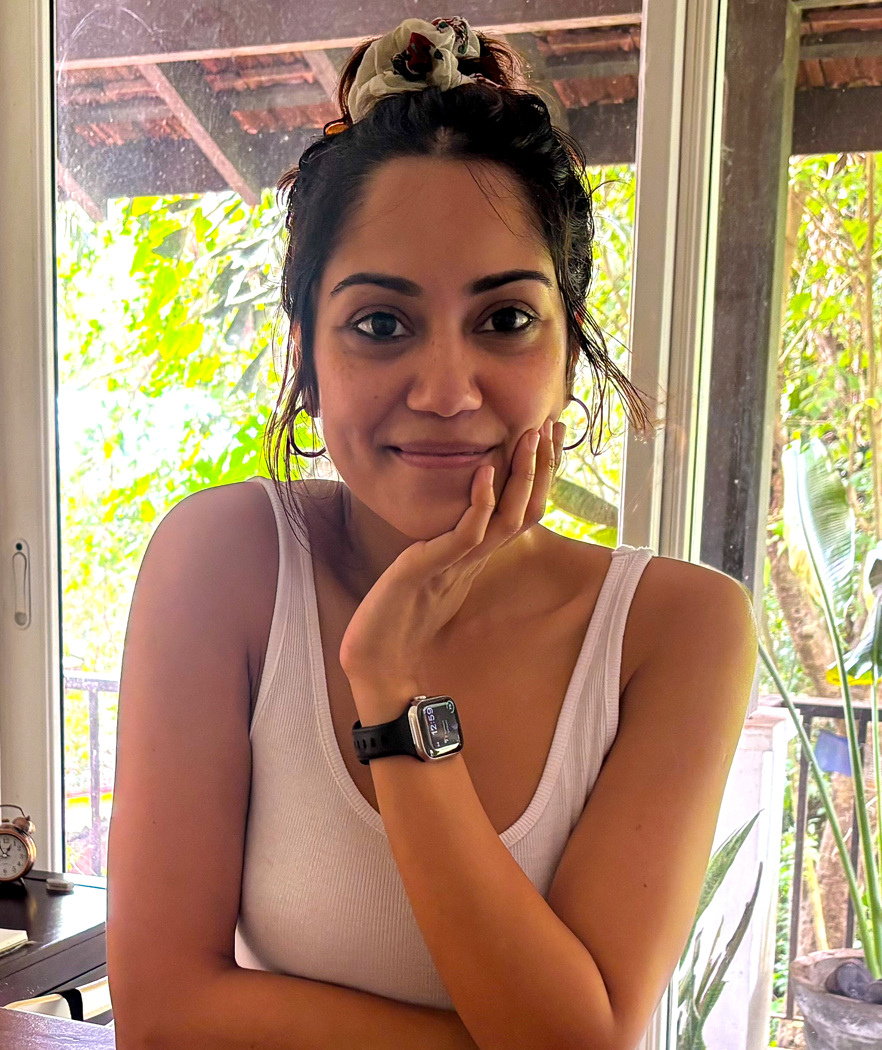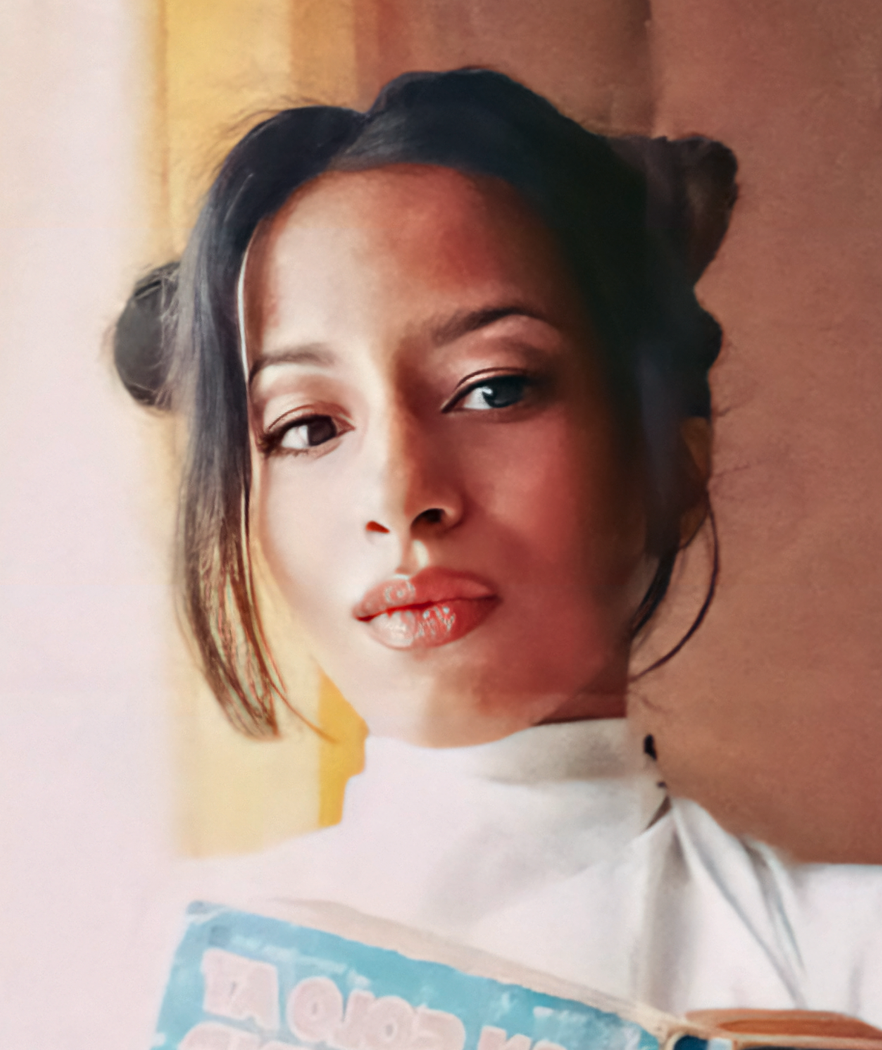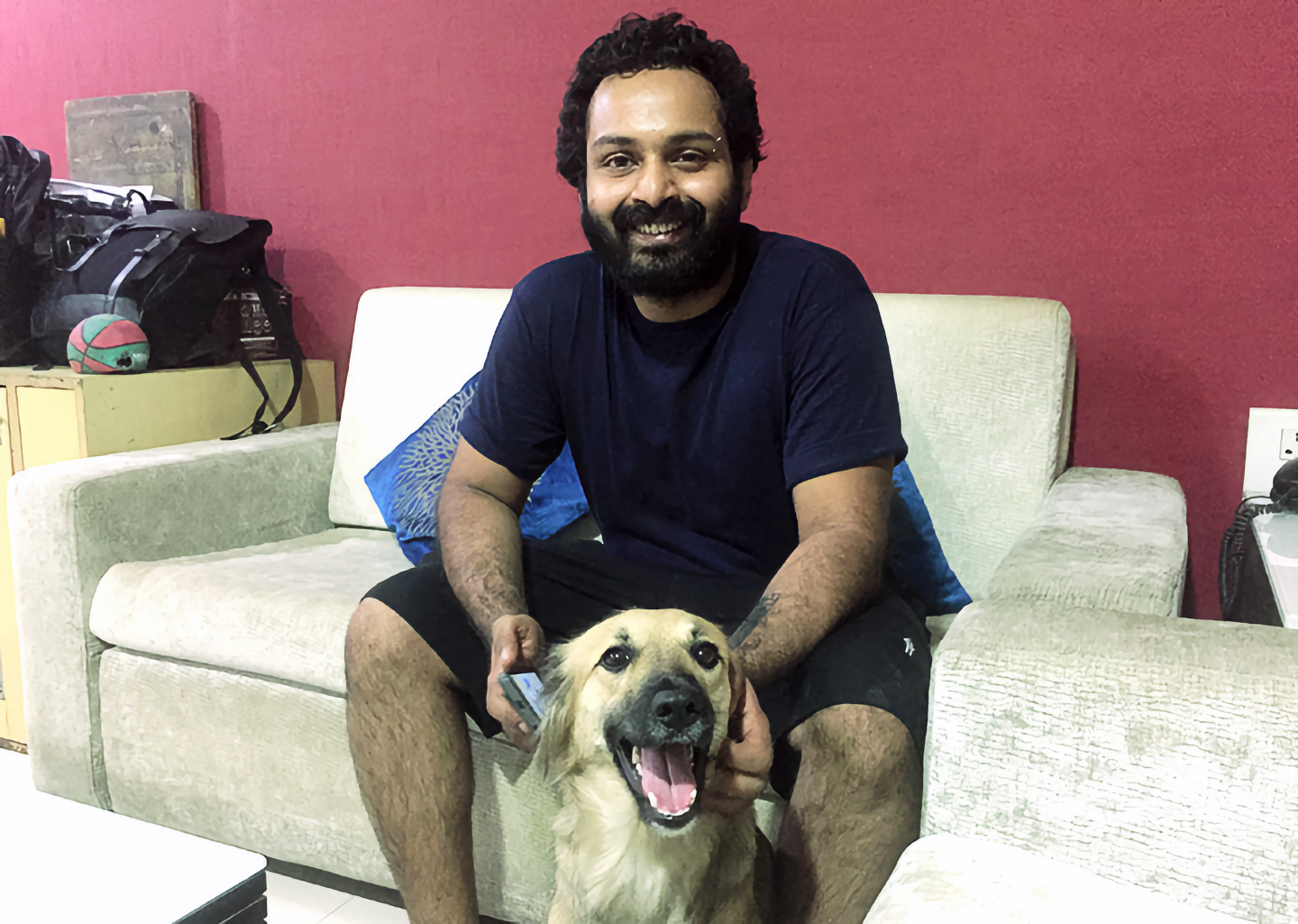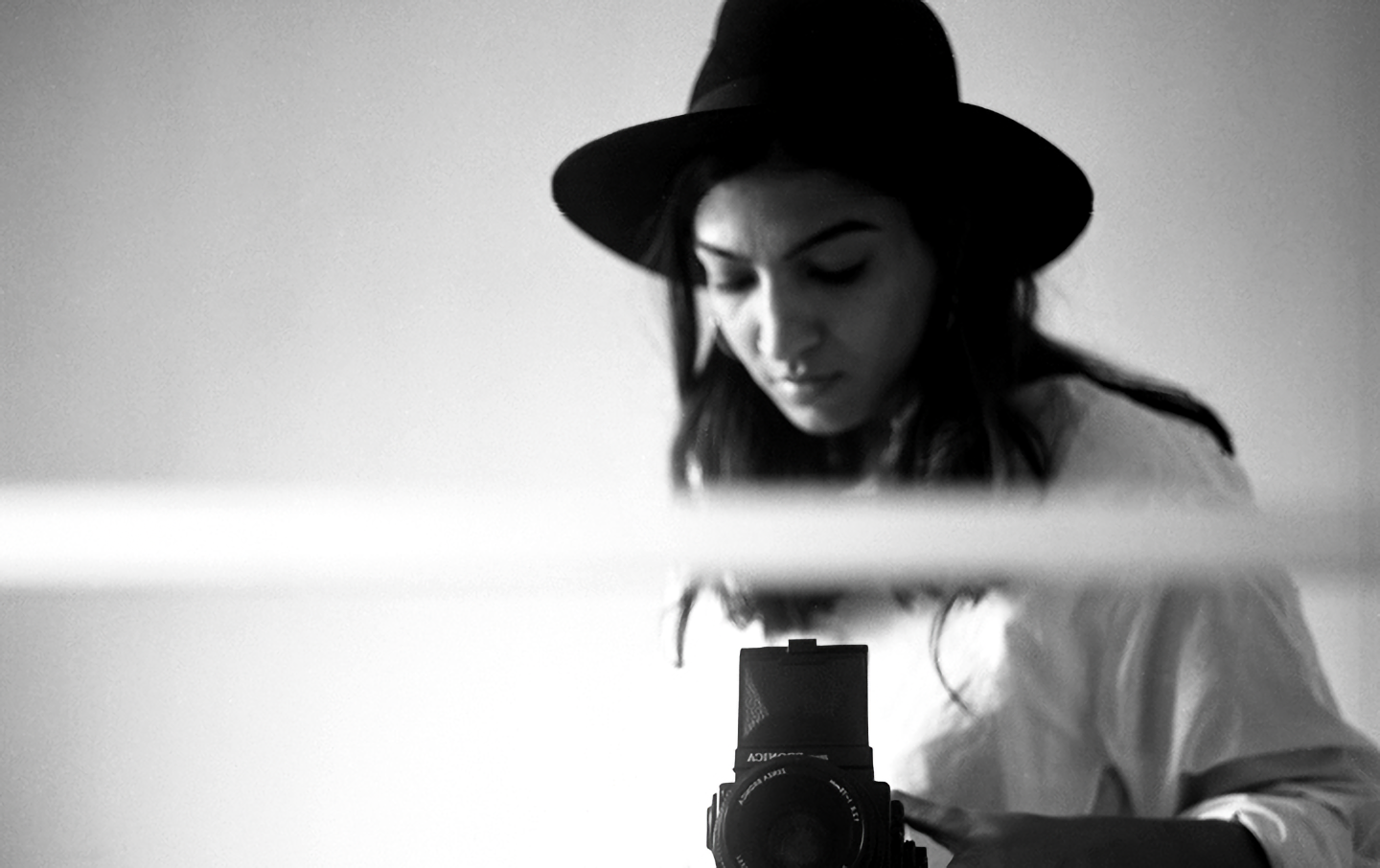Arfaaz Kagalwala has been a part of India’s indie music scene for over 10 years. He has played drums for bands such as Zebediah Plush, Galeej Gurus, Maximum Pudding, and Slow Down Clown, and been one half of electronic music duo Tempo Tantrick. In the past couple of years, he has also been performing solo as Fuzzy Logic, and has composed music for Sulemani Keeda, among other films, with partner Anurag Shanker.
Read on for excerpts from a conversation with him about studying in Catholic schools, dancing like Michael Jackson, his stints with multiple bands, composing music for films, and the state of India’s indie music scene.
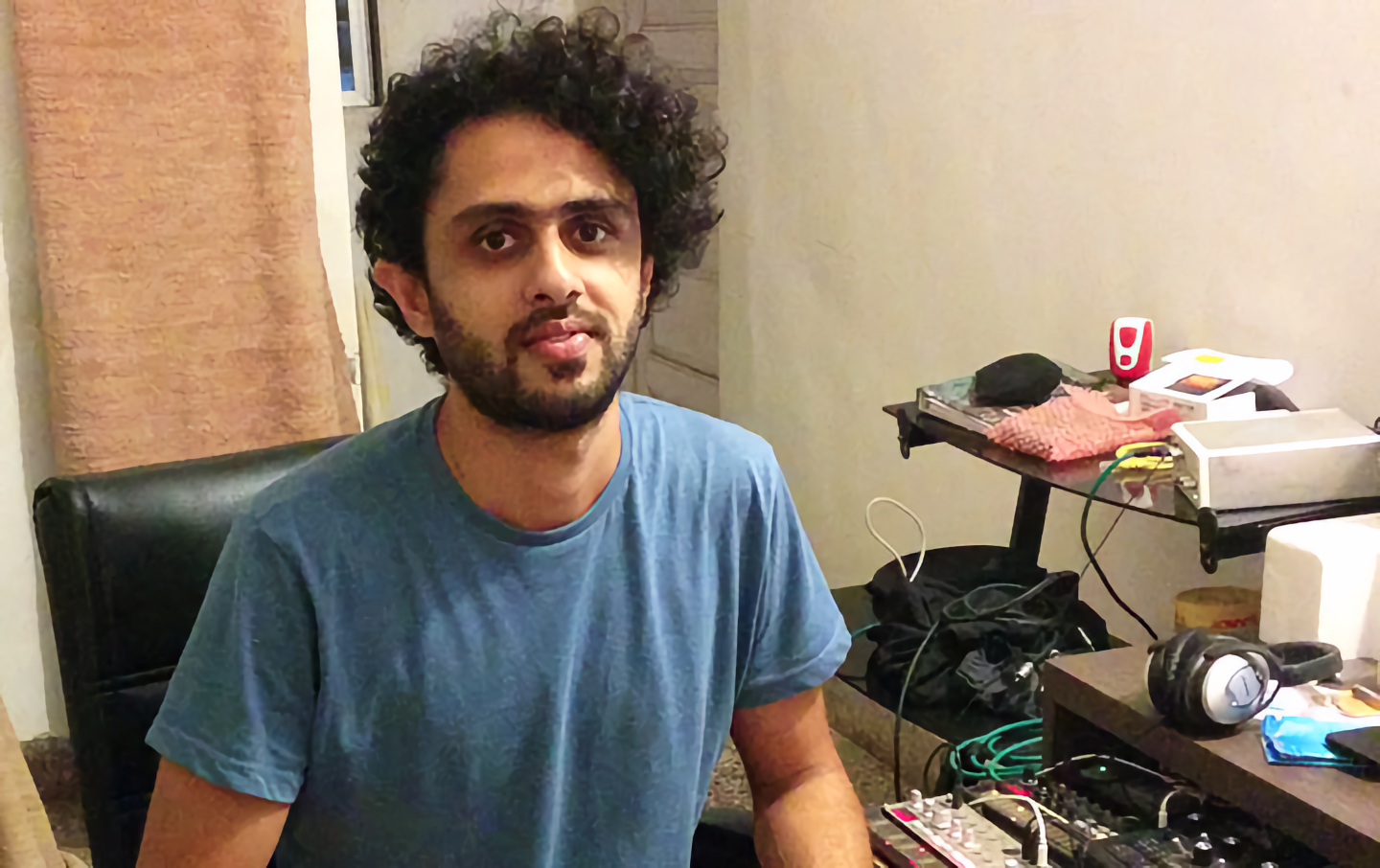
What was the first musical instrument you played?
The earliest connection I remember having to music is that my dad used to have this Hindustani classical teacher who used to come home to train him. He used to practise on his harmonium, and I used to sit in and listen to the music very intently. Whenever they were done for the day, I used to get on the harmonium and play around with it. I was always good at creating tunes; it came very naturally to me. When my parents noticed that I had a thing for music, they decided to buy me a Casio keyboard. You know the kind of keyboard I’m talking about (laughs).
Yeah. (Smiles)
And yeah, a few years later I moved on to a slightly bigger one.
Did you take any lessons to learn how to play the keyboard?
No, I never actually took classes. I just picked it up on my own. And as I started entering my teens, I realised that rhythm was really my thing. I used to dance a lot, like crazy. Michael Jackson was a huge influence on me. I used to imitate him. I was constantly invited to parties by kids around my neighbourhood—people I didn’t even know properly—because they had heard that I danced really well.
Oh, wow. (Laughs)
Yeah, they used to invite me, and I used to go and dance there, and then fuck off (laughs).
When did you start playing the drums?
When I was around 13. Like I said, rhythm was really my thing. I started getting into drumming and percussion, and I used to drum on everything possible. I finally bought a pair of drum sticks, and I started imitating the drummers I watched on Channel [V] Mainstage every Friday, using the sticks and a set of pillows. Just to get the actions right, you know?

“I was constantly invited to parties by kids around my neighbourhood—people I didn’t even know properly—because they had heard that I danced really well.”
Did someone teach you to play the drums, or did you just learn on your own, like with the keyboard?
Yeah, I asked my parents to put me in some sort of class where I could learn to play the drums. Well, it wasn’t a proper class, as such. I used to go to this guy who used to teach me some basic stuff and then just let me play on my own for a couple of hours. Until I got a drum kit, which was much later, I used to practise at his place.
Were your parents okay with you playing the drums?
My parents were very supportive initially, until they realised how seriously I was taking it (laughs). But they bought me my first drum kit as a birthday gift. The drum kit was actually made by a carpenter, who used to make kits for wedding bands and stuff. I gave him all the dimensions and other specifications.
So your first kit was custom-made?
Yeah, custom-made. Back then it cost around ₹13,000.
How did it sound?
It sounded pretty good, dude. But more than anything else, I was really excited, because all I'd had to play on before was pillows.
What was your school like? Did you enjoy going there?
I was in an all-boys, proper Catholic school. They used to beat the fuck out of us. Seriously. Every teacher had their own move, like how wrestlers have special moves like the Clothesline, etc.
(Laughs)
Yeah, they had the ‘K Shot’ and the ‘Y Shot’, etc. Everyone had their own signature move.
That sounds pretty fucked up.
Yeah, it was damn fucked up. Anyway, after that I moved to a completely chilled out Hindu school in Bangalore in 1996, in eighth grade. I went from being in a school with 60 students in each class to one with about 19 students per class. There was a very, like, shanti vibe. Moreover, it was a co-ed school, so my grades dropped like mad.
(Laughs)
C’mon, you put a guy from an all-boys school at the age of adolescence into a co-ed school, what do you expect?

“Every teacher had their own signature move, like how wrestlers have special moves like the Clothesline, etc.”
Were you a part of any bands in school?
Yeah, in 11th grade. I joined a new school after the 10th grade, and they had a board that displayed the hobbies and skills of all newcomers. I had listed mine as rock music and drums, etc. By then, I had a pretty good feel for the drums. At the time, the school had a band that had been together for a few years, but they were having some trouble with their drummer at the time because he didn’t want to play any rock songs. He thought that they were anti-Christ (laughs).
(Laughs)
Yeah, the school was a pretty hardcore Christian school. You couldn’t do covers of Eric Clapton’s ‘Cocaine’. Well, you could if you changed the lyrics and the name of the song (laughs). The other band members wanted to play stuff like Led Zeppelin, which was considered blasphemous at the school. One of the band members, Anand Varghese, noticed my name on the board, and asked me to audition for the band. He was very, like, ‘let’s see what you’ve got’ (laughs).
We first jammed in the school’s music room, which was inside the infirmary. They wanted to play ‘Smoke on the Water’, and when the riff starts, you know, that whole hi-hat part comes in. They were all waiting for me to goof up on that, and at one point they all started laughing. I felt quite bad, because I thought they were laughing at me, but I continued playing anyway. After we had finished playing the song, I asked them if I sucked, and they said it was the best drumming they had ever seen, and asked me to join the band. That was the beginning of my whole musical journey.
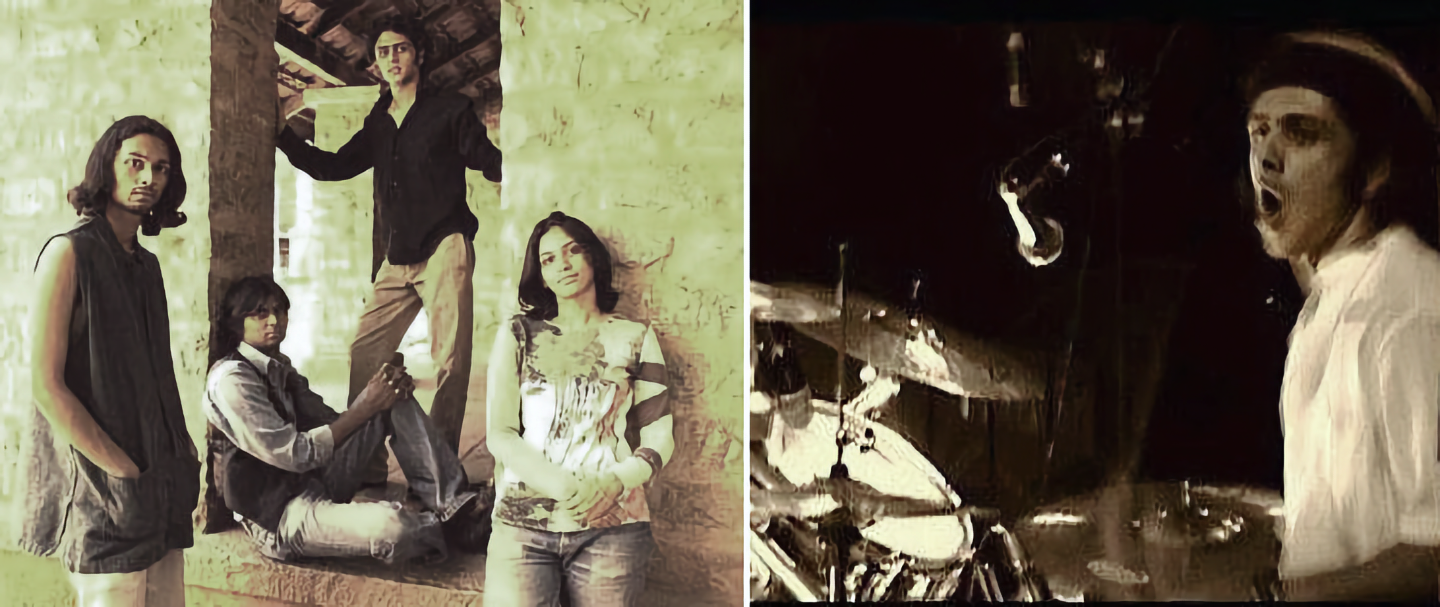
Was that also the beginning of Zebediah Plush?
That was the beginning of the school band that eventually went on to become Zebediah Plush. The only member that was different was the bass player.
Why the name ‘Zebediah Plush’?
In school, we used to call ourselves Untitled for a long time. Later, we came up with other weird names like Rod and Three Screws, etc. When we were all in Christ College, and playing more shows, we felt the need to have a proper band name. We were randomly talking about names, and discussing names like Jethro Tull and Uriah Heep and stuff, since we sounded similar to those bands. Jitu (Avijit Michael), the keyboardist, said that he wanted it to sound Biblical, like Jeremiah, or Zebediah, or something like that. At the same time, Anand was saying, ‘It should sound plush, it should sound plush!’ So we just put them together, and called the band Zebediah Plush.
What is your favourite memory of touring with Zebediah Plush?
There are so many awesome memories, man. That’s the most fun I’ve ever had. It was my first band, and it was all about feeling that completely raw energy. It was like having sex for the first time. Wait, I don’t think that sounds right. It’s usually not so good the first time (laughs).
Our first tour outside of south India was to Bombay and Pune. Guru, our manager back then, had hooked up four or five gigs, and it was a freaking riot of a tour. The scene was very nascent at the time. The venues were paying us only about ₹8,000 for each show—all inclusive—and we were coming all the way from Bangalore. We came to Bombay in a bus, and we actually covered our gear in bedsheets, since we didn’t have proper cases for our cymbals, etc. When we played our first gig, we found out that the venue wasn’t going to pay us immediately, and that we would receive a cheque at some point in the coming month.
Fuck. Clients, man.
Yeah! And our jaws dropped. We had no money. We were all college students and none of us were from well-to-do families. To make things worse, we had to go to Pune the next day for another gig and we had no money to get there. It’s a funny story—back then I used to play a show-off-y drum solo as part of our set. I was alone on stage, and the others had gone off to take a break before the next part of the show. After I was done, I was walking off stage to join the band, and there was this very well-dressed elderly gentleman with a beautiful blonde girl by his side. He called me over and said that he’d really enjoyed the drum solo, and said, ‘Take this,’ and he put some money in my pocket. I told him I was happy that he had enjoyed my set and didn’t want his money, but he said, ’Son, listen to me, take it.’ Obviously he didn’t want me to embarrass him in front of his female friend, so I kept it. I didn’t even know how much it was.
(Laughs)
When I got back to the band, they were all sitting with sullen faces, dejected about the fact that we weren’t going to get paid and had no money for Pune. I said, ‘This guy just gave me some money right now.’ And we counted it and it was ₹5,000! It was a lot of money at the time. That sorted us out and were able to complete our tour.
'Tea and Toast' by Zebediah Plush.
(Laughs) That’s a crazy story. What I loved most about the band was that your songs had this whole tongue-in-cheek thing going; there was a lot of clever wordplay and puns in the lyrics. It showed that you guys weren’t taking yourselves too seriously.
Yeah, fully. That’s why we called our album Afterlaughs. It was the ideal name, because more than anything else, we spent the most time laughing. We used to laugh together so much. That was amazing, the kind of connection that we had. I got really close to the band members, and I was really disheartened when I found out that we had to break up.
Why did that happen?
Anand had to leave to study in the U.S., and more than the others, Anand and I were the two guys who used to keep the whole thing going. Also, Anand was the primary songwriter, and without him, there was no Zebediah Plush. I was really sad, because I had big dreams for the band.
You’ve been in a bunch of other bands since Zebediah Plush as well.
Yeah. After Zebediah Plush, Jitu and I formed this interim band called Maximum Pudding, with a bass player called Abhishek, who was also part of another band called Filter Coffee. It was meant to be a purely bass, drums, and keyboard trio, and we used to make some really dance-y, disco-pop kind of music. That band lasted for a couple of years, and I joined Galeej Gurus sometime in the middle of all that. They’d been around for a while and were playing a lot of shows in those days, and it was a good gig.

“I barely used to sleep in those days. And I used to travel crazy distances at the time, between my home and my office and the band’s rehearsal space.”
Yeah, everyone used to love them.
Yeah. And it was great while it lasted, but it was also really tiring. I worked really hard with that band. I used to work for Radio City at the time, till about 6 p.m., and we used to rehearse only after 11 p.m. A lot of times, the rehearsals used to go on till 2 a.m.
Sounds exhausting.
It was, very. I used to work the early morning shift at the radio station, so I had to be at work every day before 7 a.m.
When did you sleep?
That’s what. I barely used to sleep in those days. And I used to travel crazy distances at the time, between my home and my office and the band’s rehearsal space.
Is that why you eventually left the band?
I was slowly feeling less for the kind of music that I was playing with Galeej Gurus. It was fun, but after two years, you get a little bored of playing the same songs. And rock wasn’t really doing it for me anymore. I was getting more and more into electronic music, and I got into producing it. I dabbled in a lot of software, and took a lot of time to research and figure out things on my own. I even wrote a few of my own songs.
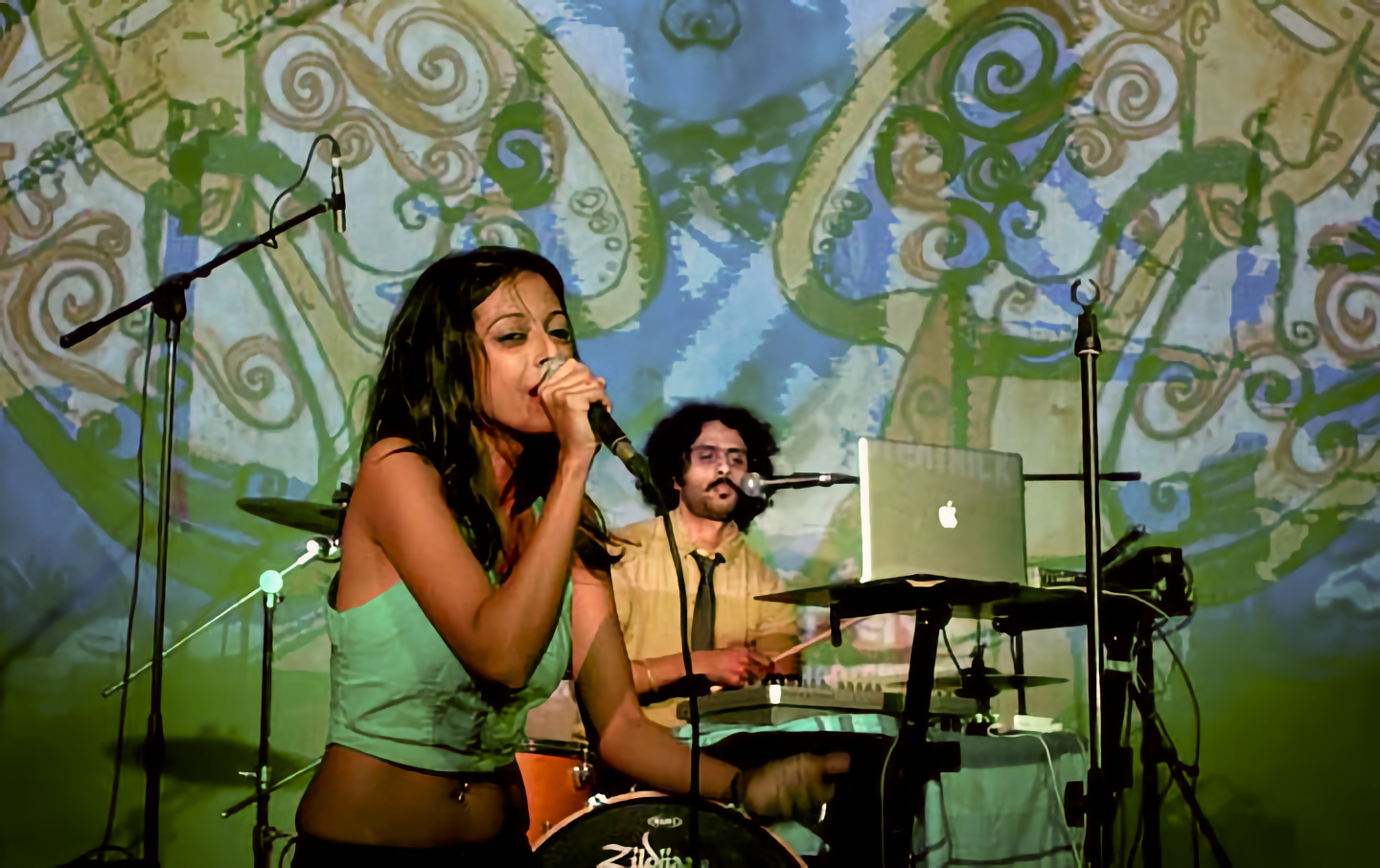
Was that the beginning of Tempo Tantrick?
Yeah. I wasn’t exactly sure what to do with the songs I had written, and I happened to meet Priyanka Blah via Abhishek from Maximum Pudding. I was listening to a lot of Massive Attack at the time and other downtempo electronic music, and I was looking for a female voice for my songs. When I met Priyanka, she wrote a bunch of lyrics for the music I had made, and I really liked what she came up with. I asked her to sing as well, and she agreed. We also started dating each other at the same time, so that happened simultaneously, the relationship and the band. Our first recordings actually happened at home using those really bad mics that come attached with those cheap headphones…
Really? (Laughs)
Yeah, cheap-ass shit (laughs). We quickly came up with the name Tempo Tantrick, and put up our songs on MySpace.
You guys never put out an album, right?
Tempo Tantrick never had an album, yeah. We only put out singles. And we had no intentions of playing live when we started. I was the only one with any experience of playing live at the time. Priyanka had never really performed before, and it was brand new for her. But eventually, two years after we started, a few people talked us into playing live, and the more we played live, the more I understood about electronic music and the tools used for live performances.
Were you guys compared to Shaa’ir + Func at all, considering that they were also on the rise at around the same time?
Yeah, yeah, there were a lot of comparisons. Like, ‘Oh, you’re an electronic duo? Like Shaa’ir + Func?’ And I used to be like, ‘Yeah’ (laughs). In fact, both bands happened at around the same time, except that we were in Bangalore and they were in Bombay, and we were super inexperienced and they were super experienced. But the music was essentially very different.

“There were a lot of comparisons. Like, ‘Oh, you’re an electronic duo? Like Shaa’ir + Func?’”
Did the comparisons annoy you at all?
No, man. I’m a pretty chilled out kind of guy. But why would it annoy me? Randolph is a phenomenal producer.
Have you had any jobs outside of your music career?
Yeah. After I finished college, I got a full-time job and started to play music on the side. I could never hold any jobs, though. I kept going from job to job to job.
What was your first job?
I joined a start-up who used to do P.R. for I.T. firms. From there, I moved on to this other start-up firm called Black Coffee Advertising. After that, I thought I should pursue something that was related to music, so I did a stint with Ashish Manchanda in Mumbai, who is a mixing and mastering engineer who does a lot of Bollywood work. I apprenticed under him for a while, after which I joined a market research firm in Bangalore. Then I did radio, and then went back to advertising, and then back to radio. Radio was fun. It was the only job where I’ve actually stuck around for a while. But eventually I decided that I needed to spend all my time making music, and felt sure that I could make money doing it.
Tempo Tantrick live at CounterCulture, Bangalore.
Was it hard to make the switch to pursuing music full-time?
Well, I moved back to Bombay, and I met with a lot of people from advertising firms for work. A lot of people treated me like shit, but some were nice, and I was able to sustain myself doing music for commercials. And I was also writing my own music as Fuzzy Logic.
Was that also when you became a part of Slow Down Clown?
Anurag Shanker, who used to be my junior at Christ College, was in Bombay when I moved back, and he got in touch with me about a project. He told me about this singer-songwriter called Vitek Goyel who wanted to record some music and needed a drummer, and I agreed to do it. I went into the studio, met Tek, recorded the music and went back home. My job was supposed to be over at this point. But later, I found that a lot of Tek’s songs were stuck in my head. I got quite attached to the music, and we ended up playing a small launch gig for the album at High Spirits in Pune. That’s actually how Slow Down Clown came together. But the band is currently on a break.
Has that left you with more time for Fuzzy Logic?
Yeah, a lot of time. I put out an EP in January this year, called Money Talks. Before the EP, I was making music that was a little quirky and out-there, and I wasn’t getting booked for any gigs as a result of that. So I decided to make music that was a little more straightforward with Money Talks, and it did pretty well. People liked it. And all the clubs and other venues who had refused to book Fuzzy Logic earlier took notice, and I started getting gigs because of that (laughs). I did a tour to promote the EP as well.

“These days, I’ve been feeling a sense of loneliness, playing solo with Fuzzy Logic. There’s no one to bounce my ideas and energy off.”
You’ve been working a new EP as well, right?
Yeah. I’ve been working on it since May this year. You know, the monsoon is the worst time of the year for me. I’m fucking broke, I don’t get gigs, I don’t get commercial work… nothing comes through in the monsoon (laughs). You have to go out in the rain, you have water coming in to your house… (laughs) So this year, I decided not to worry about getting work and started working on another EP. It’s called Guerrilla Monsoon. It has four songs, and it should be out soon. I’m also collaborating with some other artists to make music videos for three of the four songs on the EP.
How different is Guerrilla Monsoon from Money Talks?
Well, you can dance to Money Talks, but Guerrilla Monsoon makes you want to sit at home and contemplate things—and still have fun, but it’s more like a ‘smoke a joint and groove’ sort of sound. It’s a little more ambient, more moody and abstract.
Do you like playing in bands more, or do you prefer to work solo?
I’m a little scattered that way. These days, I’ve been feeling a sense of loneliness, playing solo with Fuzzy Logic. Sometimes I feel like there’s no one to bounce my ideas and energy off. I come from that sort of background, where you bond with another person and the music is the reason for that bond. I do feel a severe lack of someone to work with. The thing is, right now, I want to do everything. I love singing, I love working with analog synthesisers, I love playing the drums. But maybe there’s a way to bring all of those together. It might be interesting. You don’t really see that many drummer-vocalists in electronic music (laughs).
'Money Talks' by Fuzzy Logic.
You've also worked on music (songs, background scores) for a few films in the past couple of years. Is this something you're looking to pursue more and more?
I have worked on a couple of independent feature films along with Anurag. Our first and most fun project was Sulemani Keeda, a film about struggling writers in the Bollywood industry. The film has been pretty well-received at a number of international film festivals, and I believe it will soon have a theatrical release in India. The process of working on feature-length films is challenging, yet very fulfilling—especially if you have a good director to work with, someone who is not afraid of taking risks. It is definitely something we are both looking to pursue as a composer duo and hopefully we there will be more projects coming our way soon.
When you started out in the Indian music scene, there weren’t too many people producing original electronic music, but over the past few years, that has changed quite drastically. Do you feel that electronic music acts are slowly becoming more popular than other kinds of bands in India?
That’s just the evolution of music, I guess (laughs).
Do you think that’s what it is?
I think that’s what it is, yeah. Music has always evolved, and there’s no stopping it. And everyone is always going to be pissed off about it. If you look at when the ‘70s turned into the ‘80s, and there was more glam and more pop, and everyone was like, ‘What the fuck, where’s all that grime and that rock ’n’ roll gone?’ But it was evolution, you know? These days, pop music is entirely electronic. It’s synthesised almost entirely, up to the voice (laughs). As listeners, we are now tuned to electronic sounds. People find comfort in electronic music more than in band music, in this day and age. I’m not saying that it’s a good thing or a bad thing, but that’s just how it is, and you have to accept it. That doesn’t mean that bands should stop making music; it’s just that they need to find ways to keep their music interesting. That’s the best part about this evolution.

“I see talent and growing maturity in the young musicians coming out of India, and I'm very happy about that. At the same time, I'm super fucking frustrated, and I want to get out of here.”
Do you see yourself as part of a music scene, as part of a community of independent musicians in India?
I am, whether I like it or not, whether you can call it a scene or not. For years, people have been saying that there's no scene, there's no scene, but there's no denying the fact that there is going to be one. There's no other way. There are more and more musicians coming out every day, and they’re all getting better. I see talent and growing maturity in the young musicians coming out of India, and I'm very happy about that. At the same time, I'm super fucking frustrated, and I want to get out of here (laughs). I’d love to go to Europe or to the U.S. or the U.K., where there’s a real scene.
Are you seriously considering moving abroad?
Yeah. I feel a little stifled now, because I’ve been a part of this scene for such a long time. I want to get out and be immersed and influenced by a real scene, where people are really consuming music very differently. In India, people are always looking for familiar sounds, something that induces nostalgia. When you’re playing a set, there are always people who come to you and ask for that one song by that one DJ who did a remix of that other famous song. Why? Why can’t they want to hear something that they’ve never heard before? When that starts happening, that’s when there will really be a scene.
The Setup / Arfaaz Kagalwala
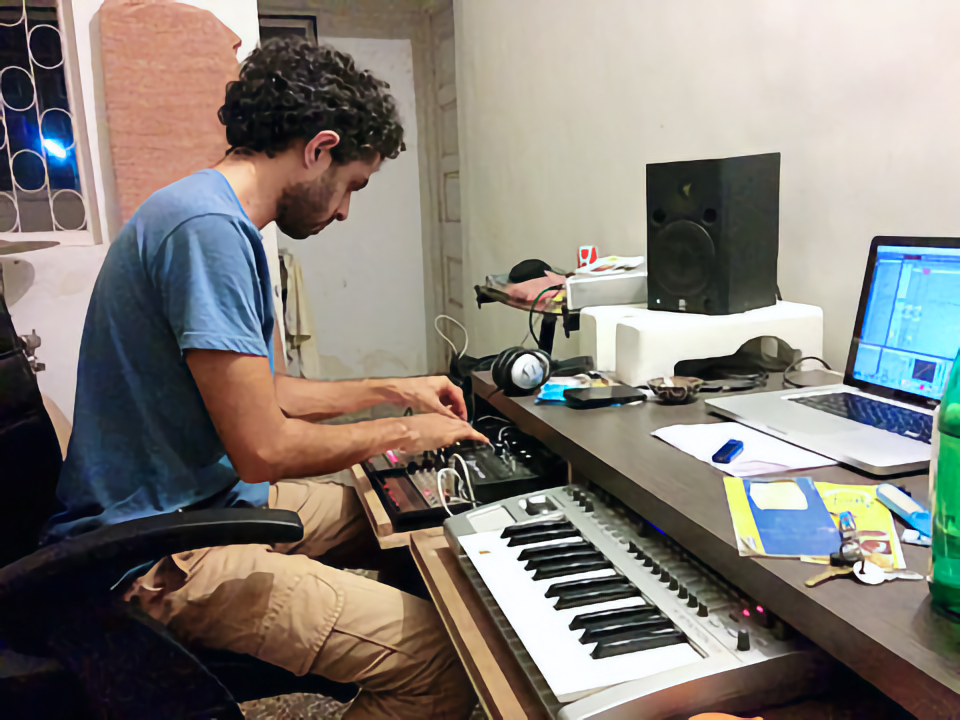
"MacBook Pro running Ableton Live. Focusrite Saffire sound card. Novation X Station synth, Notation Launchpad, and Nocturn MIDI controllers. Korg Volca Beats, Bass and Keys analog synths, a Korg Monotribe synth/ sequencer, and a Korg Mini Kaoss Pad. Shure SM-58 vocal mic. Mapex M Series five-piece drum kit with Meinl hi-hats, Stagg and Paiste cymbals."


